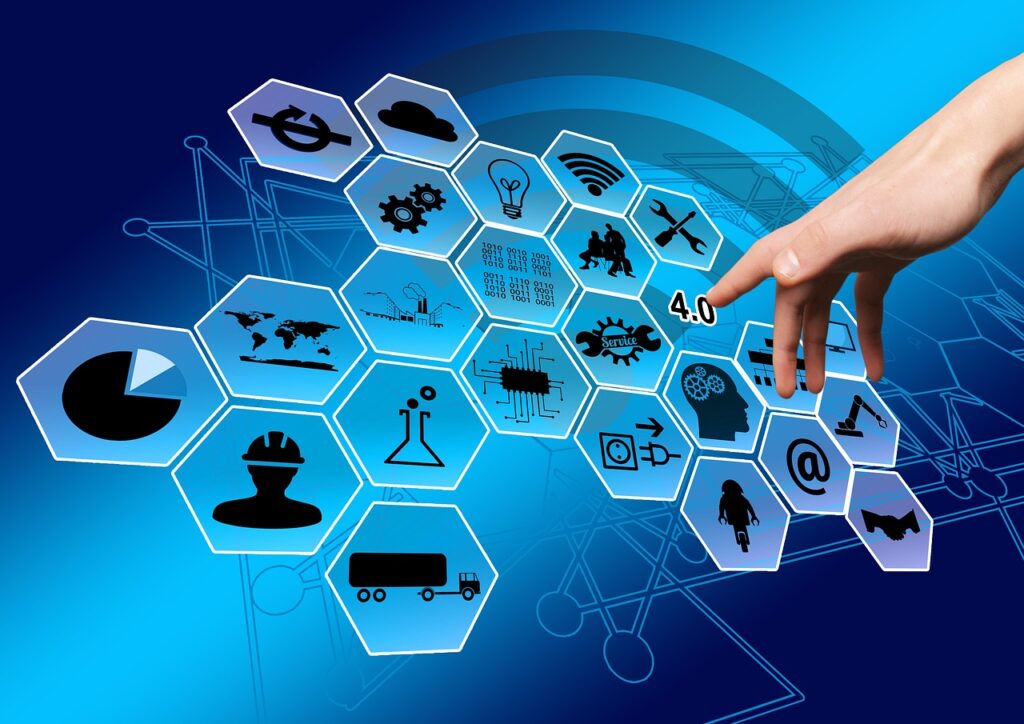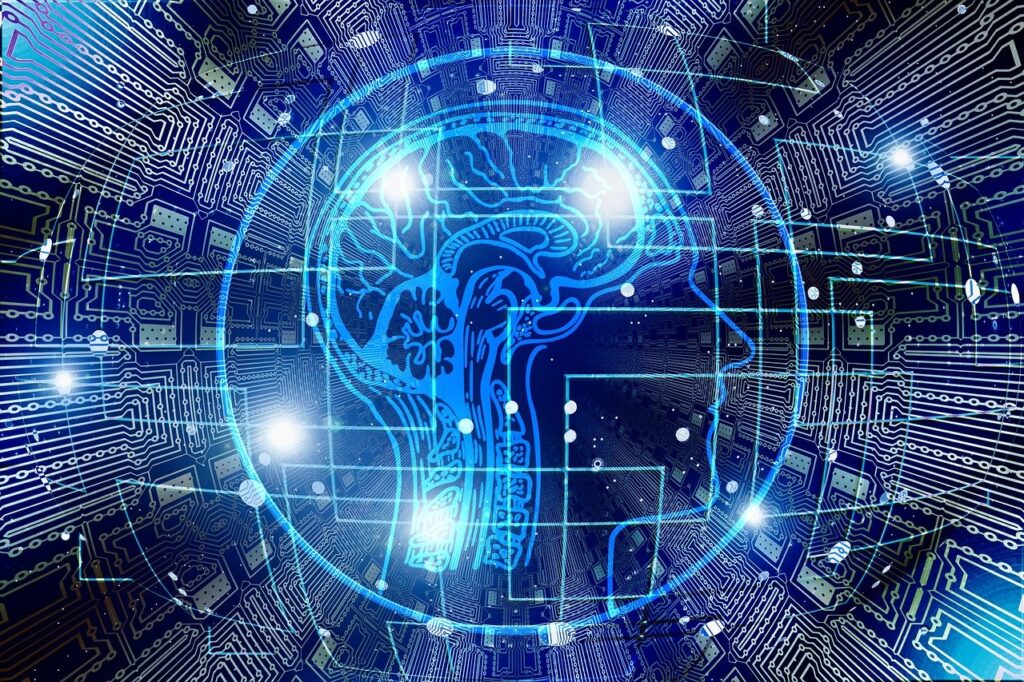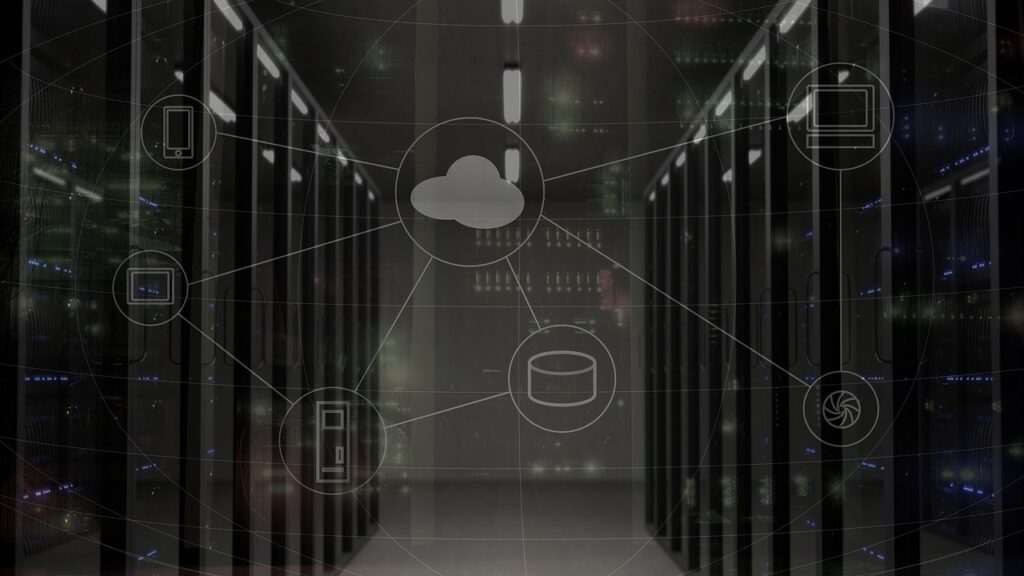
Industry 4.0 refers to a model of production and business management that is leading to fully automated and interconnected industrial production, and generally refers to the digitization and advanced automation of production processes.
Industry 4.0 comes from the so-called “fourth industrial revolution” and involves the use of machines connected to the internet (IoT – Internet of Things), data collection and analysis to activate machine learning processes, and the possibility of more flexible and faster management of the production cycle and a significant improvement in the interaction between humans and machines.
This allows the creation of “smart factories” where production machines and systems can communicate with each other and with external systems, improving efficiency, quality, and product customization.
The main aspect of a “smart factory” is that production processes are connected to the network: industrial machines, software interfaces, and components constantly communicate with each other, sending real-time digital data on the functioning of their reference parameters.
The new digital technologies will have a deep impact on four areas of development:
• The first concerns the use of data, computing power, and connectivity, and is expressed in big data, open data, the Internet of Things, machine-to-machine communication, and cloud computing for the centralization and storage of information.
• The second one is analytics: once you have collected the data, you have to obtain value from it.
• The third direction is the interaction between humans and machines, which involves increasingly widespread touch interfaces and augmented reality.
• Finally, the fourth direction of development includes the entire sector that deals with the transition from digital to real and includes additive manufacturing, 3D printing, robotics, communication, machine-to-machine interactions, and new technologies for storing and using energy in a targeted manner and optimizing performance.
Industry 4.0 is changing the way companies produce, improve, and distribute their products. Manufacturers are therefore gradually integrating new technologies, including the Internet of Things, cloud computing, analytics, artificial intelligence (AI), and machine learning.
These digital technologies are capable of bringing greater automation, predictive maintenance, self-optimization of process improvements, and above all, a new level of efficiency and responsiveness to customers.
The Internet of Things, or IoT, is a key technology for Industry 4.0.
It refers to the extension of the internet to the world of objects and concrete places that acquire their own digital identity in order to be able to communicate with other objects on the network and provide services to users.
So, IoT allows the connection of physical objects, such as sensors and devices, to the internet, making them capable of exchanging data and information in real-time.
This allows companies to collect data from production machines and processes in a simple and fast way, providing information on production levels, machine performance, preventive maintenance, and inventory management.

Artificial Intelligence (AI) is one of the key technologies of Industry 4.0 and can be useful in several ways.
AI can be used to optimize production processes, reduce wait times, improve product quality, and reduce costs. Additionally, AI can be used for predictive maintenance, predicting when a machine will need maintenance to avoid costly breakdowns and reduce downtime (through IoT sensors that provide raw data

on various operating parameters of industrial machines, which will then be analyzed by Machine Learning software capable of capturing existing correlations between different parameters).
AI can also be used to analyze large amounts of data in real-time and provide useful insights to improve machine and production process performance.
Cloud computing is another important technology that is part of Industry 4.0 and refers to a paradigm of service delivery offered on-demand by a provider to an end-user over the internet.
It refers to the provision of IT services over the internet, without the need to have hardware or software physically installed in the user’s office.
In other words, cloud computing allows access to IT resources, such as servers and software, in a flexible, scalable, and low-cost way.

Industrial automation refers to the use of technologies and systems to make production processes more automated and autonomous, reducing the need for human intervention. The goal of industrial automation is to improve efficiency, quality, safety, and flexibility of production processes while reducing operational costs.

Additionally, industrial automation can help reduce human errors and increase the precision and repeatability of production processes.
For these reasons, it is a fundamental part of Industry 4.0 and integrates with other technologies such as IoT, AI, and cloud computing to create smart and highly automated factories.
Process improvement refers to the adoption of technologies and methodologies aimed at improving the efficiency, quality, and productivity of production processes.
This can be achieved through the elimination of unnecessary activities, simplification of processes, optimization of resources, and automation of manual processes. The goal is to reduce production times, reduce errors and defects, improve product quality, and increase customer satisfaction.

We support companies in the implementation of projects in the field of Industry 4.0. Therefore, contact us for a feasibility study if your company is considering starting projects in the following areas:
| Cookie | Duration | Description |
|---|---|---|
| __cfduid | 1 month | The cookie is used by cdn services like CloudFare to identify individual clients behind a shared IP address and apply security settings on a per-client basis. It does not correspond to any user ID in the web application and does not store any personally identifiable information. |
| _GRECAPTCHA | 5 months 27 days | This cookie is set by the Google recaptcha service to identify bots to protect the website against malicious spam attacks. |
| cookielawinfo-checbox-analytics | 11 months | This cookie is set by GDPR Cookie Consent plugin. The cookie is used to store the user consent for the cookies in the category "Analytics". |
| cookielawinfo-checbox-functional | 11 months | The cookie is set by GDPR cookie consent to record the user consent for the cookies in the category "Functional". |
| cookielawinfo-checbox-others | 11 months | This cookie is set by GDPR Cookie Consent plugin. The cookie is used to store the user consent for the cookies in the category "Other. |
| cookielawinfo-checkbox-advertisement | 1 year | The cookie is set by GDPR cookie consent to record the user consent for the cookies in the category "Advertisement". |
| cookielawinfo-checkbox-necessary | 11 months | This cookie is set by GDPR Cookie Consent plugin. The cookies is used to store the user consent for the cookies in the category "Necessary". |
| cookielawinfo-checkbox-performance | 11 months | This cookie is set by GDPR Cookie Consent plugin. The cookie is used to store the user consent for the cookies in the category "Performance". |
| CookieLawInfoConsent | 1 year | Records the default button state of the corresponding category & the status of CCPA. It works only in coordination with the primary cookie. |
| viewed_cookie_policy | 11 months | The cookie is set by the GDPR Cookie Consent plugin and is used to store whether or not user has consented to the use of cookies. It does not store any personal data. |
| Cookie | Duration | Description |
|---|---|---|
| pll_language | 1 year | This cookie is set by Polylang plugin for WordPress powered websites. The cookie stores the language code of the last browsed page. |
| Cookie | Duration | Description |
|---|---|---|
| YSC | session | This cookies is set by Youtube and is used to track the views of embedded videos. |
| Cookie | Duration | Description |
|---|---|---|
| IDE | 1 year 24 days | Used by Google DoubleClick and stores information about how the user uses the website and any other advertisement before visiting the website. This is used to present users with ads that are relevant to them according to the user profile. |
| test_cookie | 15 minutes | This cookie is set by doubleclick.net. The purpose of the cookie is to determine if the user's browser supports cookies. |
| VISITOR_INFO1_LIVE | 5 months 27 days | This cookie is set by Youtube. Used to track the information of the embedded YouTube videos on a website. |
| yt-remote-connected-devices | never | YouTube sets this cookie to store the video preferences of the user using embedded YouTube video. |
| yt-remote-device-id | never | YouTube sets this cookie to store the video preferences of the user using embedded YouTube video. |
| yt.innertube::nextId | never | This cookie, set by YouTube, registers a unique ID to store data on what videos from YouTube the user has seen. |
| yt.innertube::requests | never | This cookie, set by YouTube, registers a unique ID to store data on what videos from YouTube the user has seen. |
| Cookie | Duration | Description |
|---|---|---|
| CONSENT | 16 years 8 months 3 days 15 hours 17 minutes | No description |
| DEVICE_INFO | 5 months 27 days | No description |